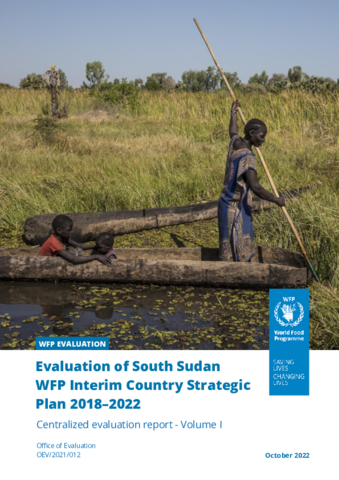
The evaluation was commissioned by the independent Office of Evaluation to provide evaluative evidence for accountability and learning to inform the design of the next WFP country strategic plan (CSP) in South Sudan. It covers WFP activities implemented from 2018 to 2021.
Conducted between July 2021 and April 2022, the evaluation examined the relevance of WFP’s strategic positioning in a volatile and crisis prone context, its contribution to outcomes, its efficiency and the factors explaining its performance. It concluded that:
- WFP has a strong comparative advantage as an emergency responder. Stronger engagement with government is needed to enhance focus on sustainability and capacity strengthening.
- The ICSP was a useful transitional framework which by nature did not include a long-term approach to addressing root causes of hunger. However there has been a shift over time towards a more forward-looking approach to sustainable resilience building. Given that available resources were insufficient to address all needs, targeting was a huge challenge and WFP assistance was perceived as being spread too thinly.
- Adaptations were assessed positively. Yet, research, assessment, monitoring and evaluation systems could be better integrated into decision-making processes.
- While WFP performance on unconditional food assistance and nutrition (SO1/SO2) was rated highly, overall performance of SOs fell short of targets. WFP delivered a strong performance on protection, accountability to affected population, humanitarian principles, conflict sensitivity and gender. However, it needs to continue to build on its work.
- The challenging context undermines potential to deliver sustainable impact. WFP was cognizant of the strong interconnections between long-term food security, resilience and peace building. Timely delivery was hindered by factors mostly outside WFP's control. Funding shortfalls were a major issue and a key driver of WFP’s serious attention to cost-efficiency measures. A deeper consideration of new funding streams is needed.
